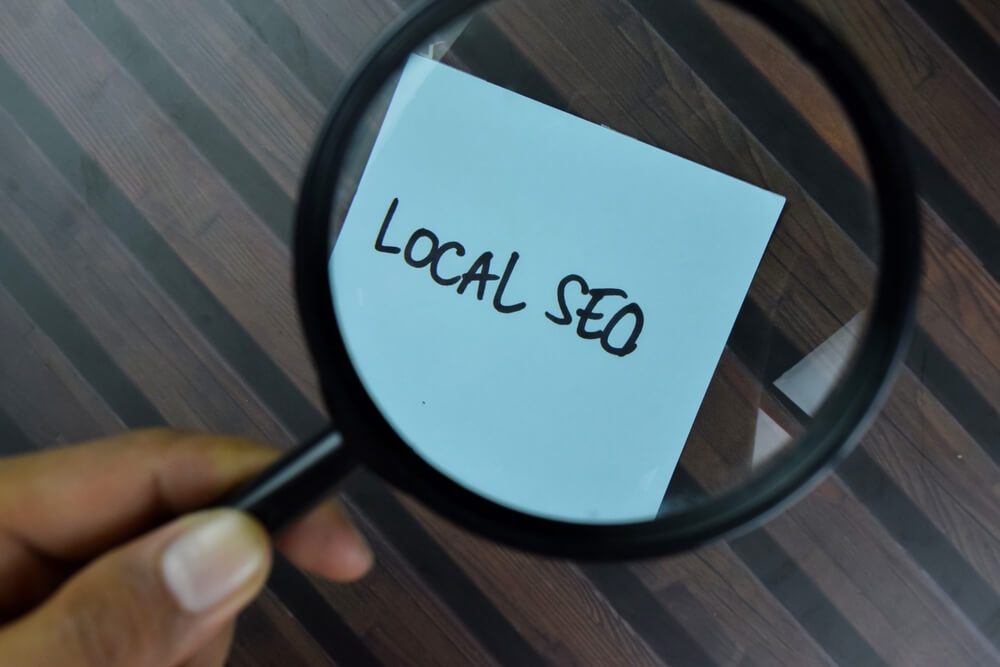Before we dive into the ins and outs of local SEO for doctors, you probably already know that Google plays a massive role in the amount of traffic healthcare websites get. Local SEO for medical professionals isn’t only an opportunity for you to educate your potential patients about your services and medical conditions. It’s also a chance to showcase your expertise and show compassion from the very beginning, establishing yourself as an authoritative figure among your local healthcare practices.
In this article, our expert team at Rosy Strategies has developed the ultimate strategies for local SEO for dentists and doctors to help you unlock the power of search engine optimization. And by the end of the article, if you want to learn even more, you can always look for our SEO services in Miami and Fort Lauderdale, FL.
Healthcare Local SEO By The Numbers
Why is local SEO for healthcare important? Well, according to the gathered data, around 57% of surveyed patients say that they’ve booked their appointment thanks to online search and that most of the major medicine sites, such as MayoClinic.org, HopkinsMedicine.org, and ClevelandClinic.org get over 80% of their traffic organically.
Still, grabbing a good rank on Google isn’t as straightforward as launching a new website. Search engine optimization has come a long way, and you need to put in some work to become visible in the ocean of websites found on the internet.
That said, as a smaller practice, you should start thinking locally. More specifically, you should start considering the tactics and approaches that will help potential patients living in your vicinity find your practices and learn about your expertise.
To help you do just that, we bring you a handful of excellent tips regarding local SEO for doctors.

Local SEO For Medical Professionals: What Is It?
Local SEO for dentists and doctors aims to help with the statement we made above: it makes your website and online presence more visible for users in your area, who will have an easier time finding you if they are conducting location-specific searches.
This, for the most part, means trying to rank high for the following search query, for example: “Dentist in Biscayne” or “Pediatrician near me.” In both cases, search engines will take a look at either the given location or the user’s IP address to find the best matches and connect them with the experts they are looking for.
Best Strategies for Healthcare Local SEO
So, without further ado, let’s look at how to drive traffic by thinking locally.
1. Use Google Business Profile
Known formerly as Google My Business, now Google Business Profile should be your first step in your healthcare local SEO strategy.
Google Business Profile can help smaller practices get exposure and showcase their products and services to searchers. It gives you the opportunity to create a comprehensive listing with all your necessary information, and it’s vital if you want to benefit from local SEO for healthcare.
To get the most out of these features, consider adding an appointment scheduling link on your profile to boost your conversions with a few simple steps.
On that note, make sure that you have your name, address, and phone number listed correctly, with your most recent working hours. If any of these are suspected to be frequent changes (especially hours of operation), don’t forget to update them regularly.
2. Utilize Geolocal Keywords
Apart from your “standard” keywords, optimize your content with location-specific keywords as well. This can be everything from “surgeon in Miami” to allergy services in Doral, Miami, Florida,” and so on.
The trick when it comes to keyword optimization for local healthcare SEO is to be intuitive and try to pin down what people are thinking about when looking for a doctor. Brainstorm your ideas, create a list, and check out how they rank.
3. Make Good Use of Local Reviews
Online reviews can also help you boost your efforts if local SEO for healthcare is your main goal. Apart from helping you with visibility, they also help with credibility as potential patients can get peace of mind reading the reviews, ensuring them that they are in good hands. That said, make sure that your GBP listing has an extensive and diverse list of reviews that they can trust.
Still, there’s a catch. If you know human nature, you’ll also know that more people will actually take the time to leave a bad review than to praise an excellent service. As such, you will have to pursue these positive reviews actively for your own reputation’s (and optimization effort’s) sake.
To do this, you can always simply ask your patients to kindly leave a review if they are satisfied with your services.

4. Use Google Posts
Google Posts is a handy little tool that enables you to communicate with your audience. Google Posts will let you showcase ten of your posts, which stay live for around a week. You can leverage these spaces for promotions, offers, announcements, and more. To make things even more interesting and SEO-friendly, you can leave call-to-action links on the posts to your local landing pages.
Simply put, Google Posts enables you to reach out and communicate your latest offerings and news to prospective patients who can gather more knowledge about you via your latest updates.
5. Safety and Health Attributes in GBP Listings
Google incorporated these features as a result of the pandemic, and these information nuggets can give local users a better idea of what they can expect at your practice.
Ever since COVID-19, people want to ensure that your practice is safe and up to date with the latest safety standards before they pay you a visit.
6. Embrace Local Link Building
Backlinks, which are links to your website placed on other websites, are essential for SEO. Google values websites with numerous backlinks as they signify trustworthiness and authority. For local SEO, it’s crucial to acquire links from local sources to establish your presence in a specific area. This process is known as local link building, and various strategies can help you obtain these links.
Some effective strategies include creating valuable content related to healthcare and getting it featured on your community blog with a link back to your website. Sponsoring local school teams or students and joining your local chamber of commerce can also earn you valuable links. Writing content for local newspapers and contributing to local business directories are additional tactics to consider.
If You Need Help
Local SEO for healthcare also utilizes a few more excellent practices, which we didn’t talk about above. All in all, it’s a great way to gain a stronger presence in the local scene and drive more relevant traffic to your website. Still, local SEO requires constant work and tweaking. That said, medical professionals should consider partnering up with seasoned SEO experts such as us, who can take care of their search engine optimization while they focus on what they do best – treating patients and improving their lives.










